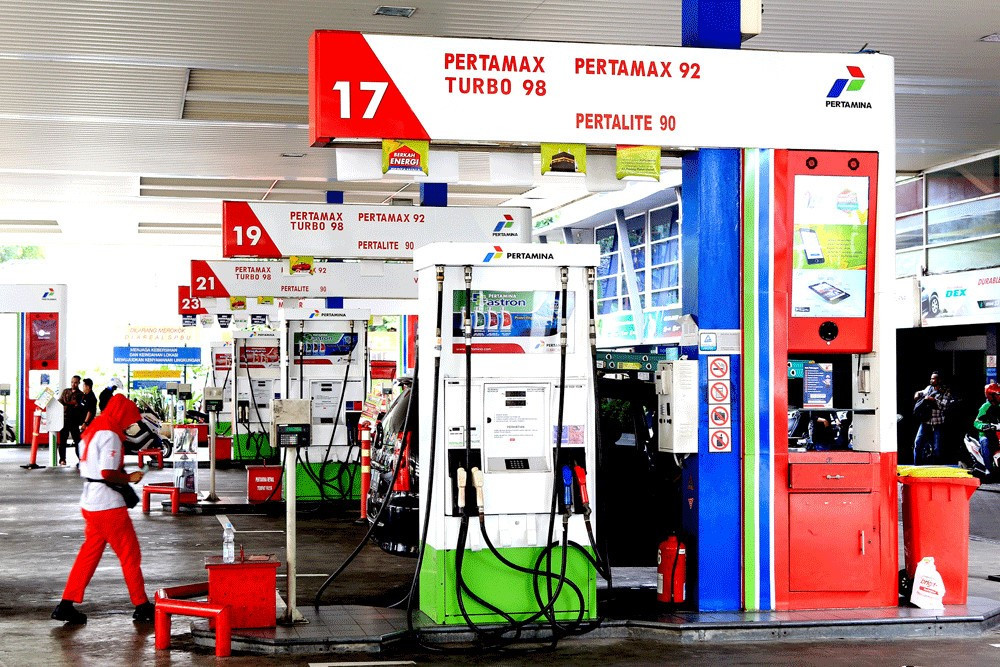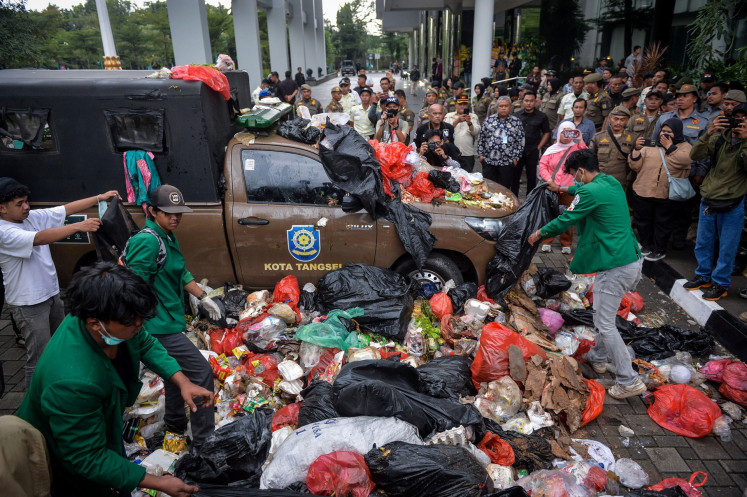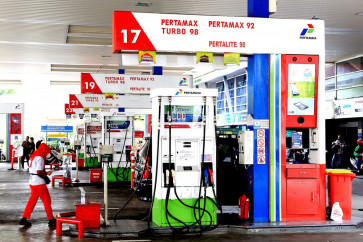Popular Reads
Top Results
Can't find what you're looking for?
View all search resultsPopular Reads
Top Results
Can't find what you're looking for?
View all search resultsAnalysis: Pertamina to receive Rp 3.37 trillion in state capital injection
Change text size
Gift Premium Articles
to Anyone
S
tate-owned energy company PT Pertamina has quietly received a state capital injection (PMN) of Rp 3.37 trillion (US$40.47 billion), based on a presidential regulation (PP) signed on Oct. 3. Pertamina has received this PMN to fortify the state-owned enterprise's (SOE) capital structure as well as to fund the capacity of its business activities. Interestingly, the SOE received this PMN through PP No. 48/2023 on PMN allotment to PT Pertamina. The use of the presidential regulation means that the PMN was given solely through the President's authority without getting approval by the House of Representatives.
In preparation for the inevitable criticism that this is an abuse of the President's authority, Article 2 of the PP states that the PMN consists of state-owned assets from the disbursement of the national budget (APBN) to the Energy and Mineral Resources Ministry from the year 2009 to 2017. This means that the PMN does not create any new allocation in the 2024 national budget, since it only transfers funds and assets from the APBN of prior years that were already allocated.
A breakdown of the regulation reveals that roughly 45.8 percent, or Rp 1.55 trillion, of the PMN came from the energy ministry's natural gas distribution network that formerly belonged to the Oil and Gas Directorate General. The remaining 54.2 percent, Rp 1.83 trillion, of the PMN came from state-owned gas stations and supporting infrastructure.
Pertamina, as one of the main actors in Indonesia's energy transition initiatives, has undertaken numerous large-scale projects, from developing Indonesia's new and renewable energy industry to developing the electric vehicle (EV) infrastructure. Naturally, this means that the SOE requires large amounts of capital to implement these projects.
One issue, however, is that this additional PMN came only a month after the Finance Ministry had approved the allocation of Rp 42.8 trillion in the APBN 2023-2024 to five SOEs, with Rp 1.5 trillion to PT Sarana Multigriya Finansial (SMF), Rp 28.8 trillion to Hutama Karya, Rp 1.7 trillion to PT Len Industri, Rp 10 trillion to PLN and Rp 659.1 billion to AirNav Indonesia (LPPNPI).
Among those five SOEs, Hutama Karya is particularly contentious as numerous news outlet have covered the troubled construction company and its repeated failure to pay its debt.
The public's general perception of PMNs has shifted to the belief that they are used primarily to bail out failing SOEs. This sentiment has been compounded by recent news, namely coverage of the Pertamina Balikpapan Refinery expansion project, which reached a massive 30 percent cost overrun due to management and organizational issues. This has created an impression among the public that the PMN is more likely to be used for paying off cost overruns than to fund business expansion.



















